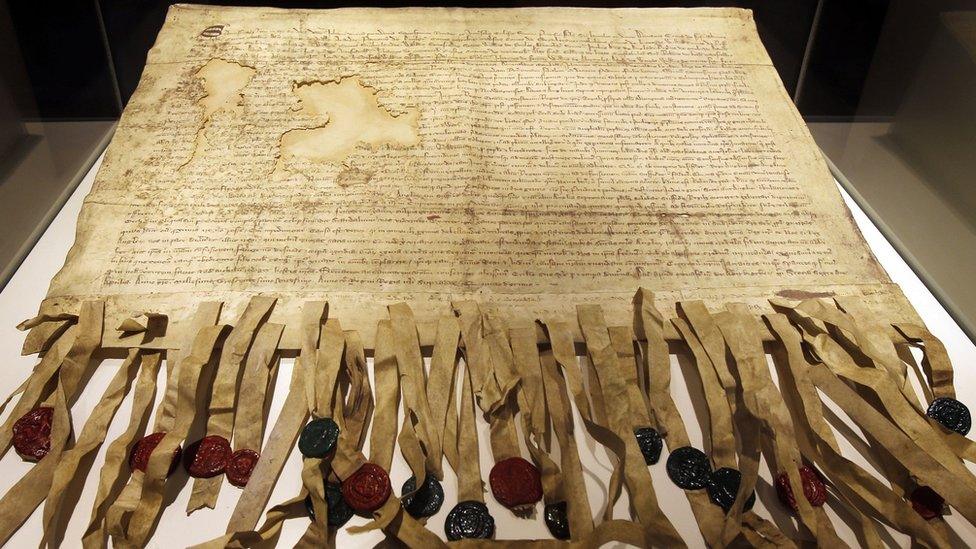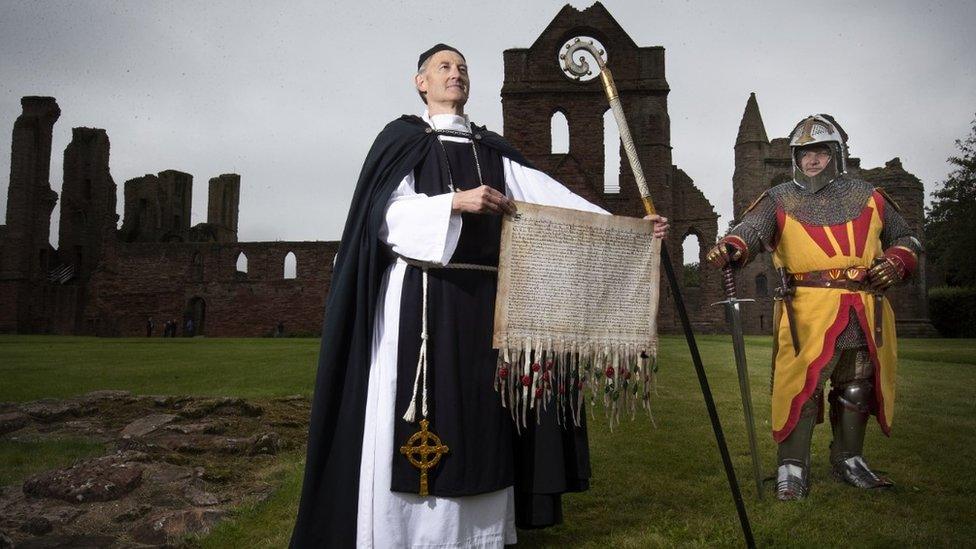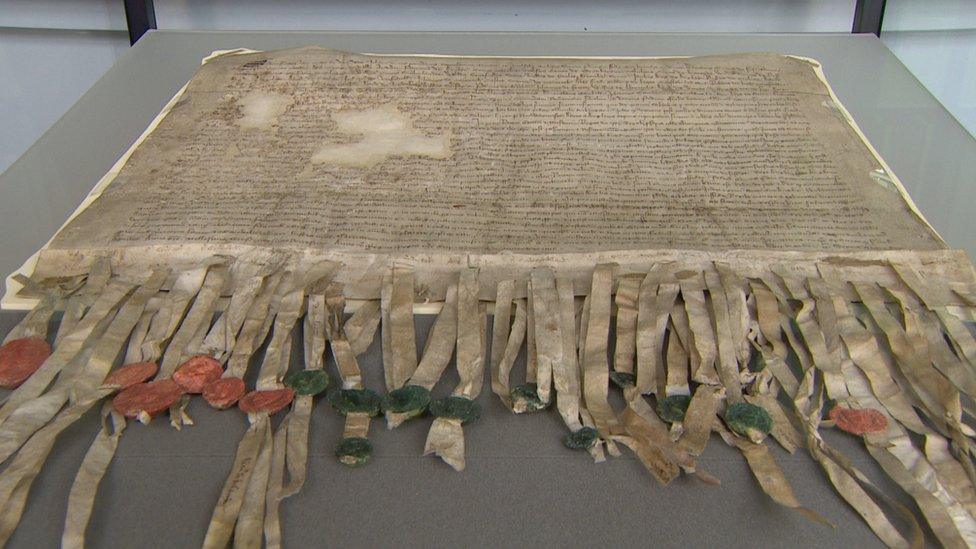Social media makeover for Declaration of Arbroath
- Published

The new initiative is using social media as a tool to tell the story of the declaration
The Declaration of Arbroath, a 701-year-old document calling for Scotland's independence, is being given a makeover for the younger generation.
To mark the anniversary of the document, 16-25 year-olds are being asked to submit updated versions of the declaration.
The letters should be "inspired by the principles of the historic document".
The winner will be shared on TikTok and Instagram stories and will be performed in a spoken word performance.
This will be held at the Arbroath Festival and the new document will be physically crafted to sit in a writing room at Arbroath Abbey.
Literary group Scottish Pen and Arbroath Festival have joined forces for the project called "New Declarations".
Rebecca Sharp, writer and mentor for the project, said: "We studied the Declaration of Arbroath and how it functioned at the time of 1320 - background factors that influenced how it was written and who sent it, who it was for and how it was received.
"That led us into thinking about how to write a new declaration, in the context of where we are now."
She added: "The role of technology is always a factor, and clearly influences how we communicate now.
"Digital platforms and online spaces offer useful and exciting possibilities, while at the same time throwing up parallel concerns around ownership and control, freedom of expression, hate speech, censorship, self-censorship and identity."

What is the Declaration of Arbroath?

Actors Ken Lownie (left) and Harry Brechin helped mark the 700th anniversary of the Declaration of Arbroath at a photo call at Arbroath Abbey in August last year
The Declaration of Arbroath was a private letter (it did not get the name declaration until much later), written in 1320 by Scottish Barons and Earls asking the Pope to recognise Scotland's independence and acknowledge Robert the Bruce as the country's lawful king.
It was created during Scotland's long war of independence with England, which began with Edward I's attempts to conquer Scotland in 1296.
Originally written in Latin, the most famous statements in the letter are: "As long as but a hundred of us remain alive, never will we on any conditions be brought under English rule.
"It is in truth not for glory, nor riches, nor honours, that we are fighting, but for freedom - for that alone, which no honest man gives up but with life itself."
The only surviving copy is a fragile sheepskin parchment, carefully preserved by the National Records of Scotland.

The Arbroath Festival, described as "an apolitical cultural celebration of the legacy of the declaration", runs from 2 July to 12 September.
Last year, research commissioned by the National Trust for Scotland found that more than half of Scots had never heard of the Declaration of Arbroath.
But polling showed that almost eight in 10 people wanted to know more about it.
Diarmid Hearns, head of public policy at the National Trust for Scotland, said: "Our research also showed us that when people learn about and experience Scotland's heritage, they are more likely to value it and want to conserve it for the future."
Related topics
- Published6 April 2020
